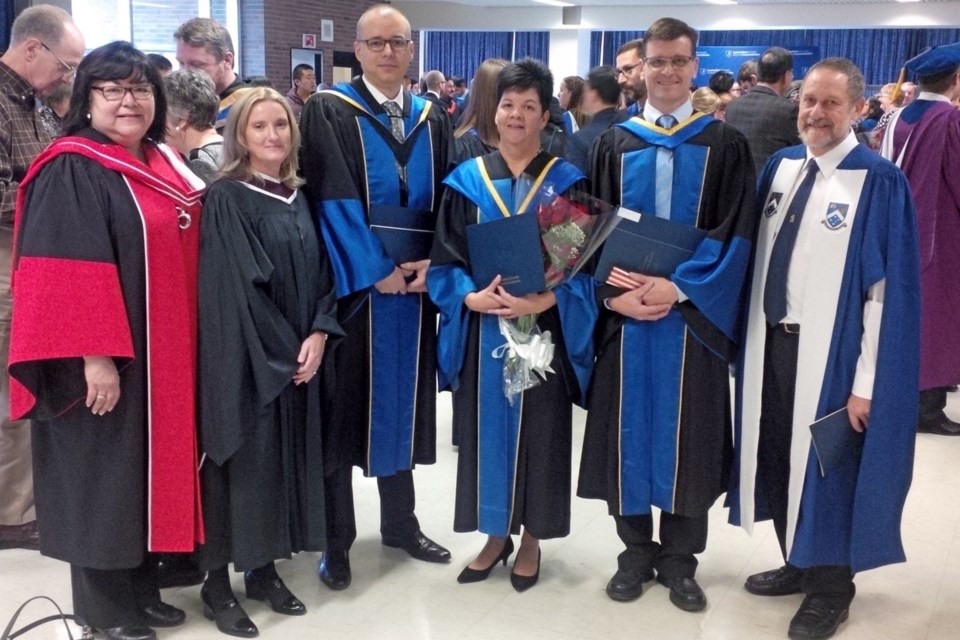Laurentian University recently marked a milestone with the 40th graduate from its PhD in Rural and Northern Health program.
The program, now under the guidance of Dr. Elizabeth Wenghofer, has seen its graduates take on critical roles in education and health care since its first graduate in 2009.
With a focus on increasing research capacity in the realm of rural and northern health, the program has not only met but exceeded its objectives. Wenghofer emphasizes the importance of the graduates as "Champions for the North,” representing and addressing the unique health issues faced by Northern Ontario communities.
"The PhD in Rural and Northern Health allowed me to expand my understanding of health care in Northern Ontario and provided me with the skills to advocate for small communities,” said David McNeil, a graduate of the program and now CEO of Health Sciences North.
Cindy Peltier, another program graduate and now professor at Nipissing University, echoes these sentiments.
“The program prepared me to further explore topics in Indigenous Health and greatly influenced my research today,” she said. “I am fortunate to now guide PhD students interested in similar topics and prepare them to work with Indigenous communities in meaningful ways.”
The program's success lies not only in the quantity but the breadth of its graduates.
"A diverse class of 40 graduates, including those with backgrounds in health and social sciences, management, education, and a wide variety of health professions, benefits from different viewpoints, making them high-quality researchers and advocates,” said Wenghofer.
“They work together to expand their understanding, as well as my own, as not a class goes by that I don’t have the privilege of learning.”
The legacy of the Rural and Northern Health program is strong. Wenghofer shared that many of the graduates maintain an enduring relationship with the program by working with current students and staying connected to the rural and northern communities that were part of their research.
“The areas of research among graduates is vast with topics ranging from mental health, to occupational health, to health professions education, to healthcare services for vulnerable and underserved populations,” she said.
Many graduates have become professors and many continue to shape the future of health through their work and research across the globe.
In response to the program's growth and future trajectory, Wenghofer expresses her vision.
"l'd like to see the program expand its capacity to accommodate more students and further develop community partnerships. We aim to become the go-to place in Canada for research in rural communities,” she said.
"We have had quite a few students working with Indigenous and Francophone communities, showcasing the program's commitment to the health care needs in Northern Ontario,” added Dr. Wenghofer.
Applications for a September 2024 start in the PhD in Rural and Northern Health program at Laurentian University are open until Jan. 31, 2024.
As the program continues to flourish, the university anticipates a continued positive impact on health care in rural and northern regions. Questions about the program can be directed to Wenghofer.
About the graduates:
- Fifteen are professors or post-doctoral candidates
- Eleven are professors at Laurentian University, including: Alain Gauthier, Faculty of Education and Health; Stephen Ritchie, School of Kinesiology and Health Sciences; Joey-Lynn Wabie, School of Indigenous Relations; Judith Horrigan, School of Nursing; Roberta Heale, School of Nursing; Emily Donato, School of Nursing; Jeannette Lindenbach, School of Nursing; Susan Manitobwabi, School of Indigenous Relations; Sylvie Rivard, School of Social Work; Caroline Dignard, School of Kinesiology and Health Sciences; Elizabeth Patrick, School of Social Work
- Nine are working for governmental or research organizations
